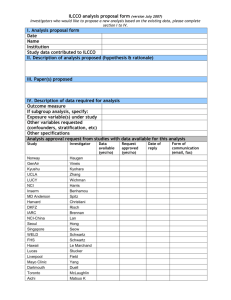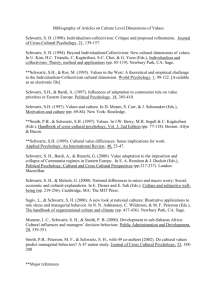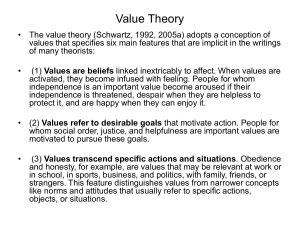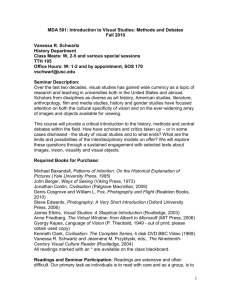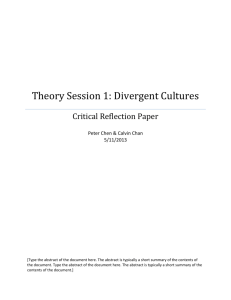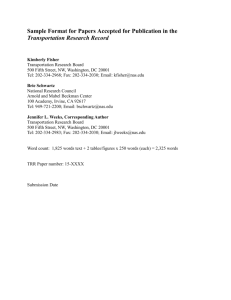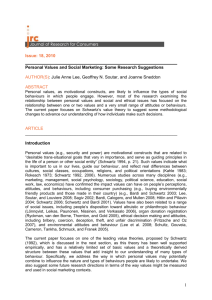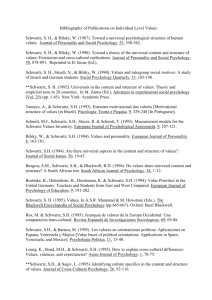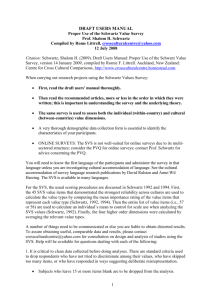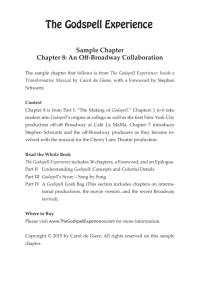CMPuttingItIntoPractice.PPTnotes
advertisement
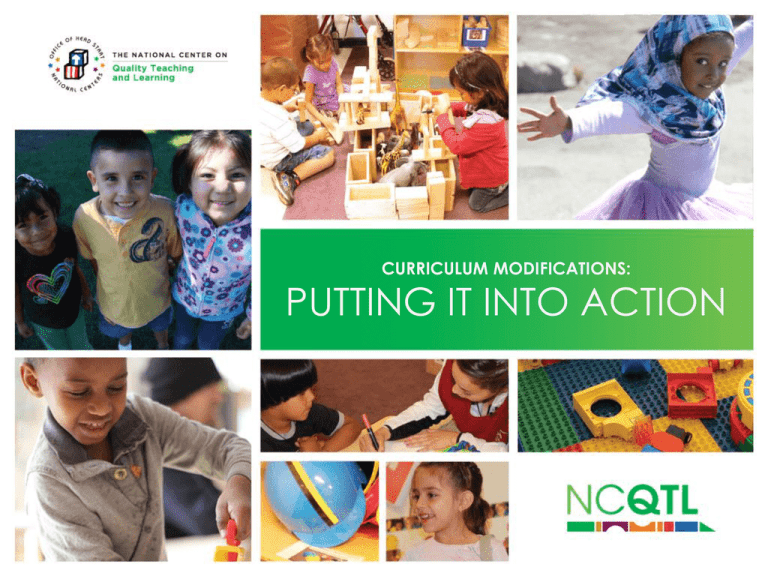
CURRICULUM MODIFICATIONS: PUTTING IT INTO ACTION OBJECTIVES Review curriculum modifications. Discuss a plan for action. Organize a plan based on an individual child’s needs. WHAT IS CURRICULUM MODIFICATION? SMALL CHANGE, BIG IMPACT WHY MODIFY THE CURRICULUM? Access Participation Increased learning! TYPES OF CURRICULUM MODIFICATIONS Environmental Support Special Equipment Materials Adaptation Adult Support Simplify the Activity Peer Support Child Preferences Invisible Support ENVIRONMENTAL SUPPORT “ “ Altering the physical, social, and temporal environment to promote participation, engagement, and learning. — Sandall & Schwartz, 2008 MATERIALS ADAPTATION “ “ Modifying materials so that the child can participate as independently as possible. — Sandall & Schwartz, 2008 ACTIVITY SIMPLIFICATION “ “ Simplifying a complicated task by breaking it into smaller parts or by reducing the number of steps. — Sandall & Schwartz, 2008 CHILD PREFERENCES “ “ If the child is not taking advantage of the available opportunities, identify and integrate the child’s preferences. — Sandall & Schwartz, 2008 SPECIAL EQUIPMENT “ “ Using special or adaptive devices that allow a child to participate or increase the child’s level of participation. — Sandall & Schwartz, 2008 ADULT SUPPORT “ “ Having an adult intervene to support the child’s participation and learning. — Sandall & Schwartz, 2008 PEER SUPPORT “ “ Utilizing peers to help children learn important objectives. — Sandall & Schwartz, 2008 INVISIBLE SUPPORT “ “ Purposeful arranging of naturally occurring events within one activity. — Sandall & Schwartz, 2008 PUTTING IT INTO ACTION PUTTING IT INTO ACTION Observe the child and clarify the concern Identify a modification strategy Make an action plan Give it a try Determine if it’s working OBSERVE AND CLARIFY When is there confidence? When is it breaking down? CHOOSE A MODIFICATION STRATEGY • Match supports with the child’s needs. • Keep it simple. • You can try more than one. • Don’t be afraid to experiment. • If at first you don’t succeed… MAKE A PLAN • • • • What needs to be done? Who will do it? When will it be ready? How will everyone stay informed? USE AN ACTIVITY MATRIX GIVE IT A TRY! DETERMINE IF IT’S WORKING Is it working? YES • Improving… NO • No improvement… • Fully participating… • Still no improvement… REVIEW Putting modifications into action: • • • • • Observe and clarify the issue Identify a modification strategy Make a plan and give it a try Determine if it works If at first you don’t succeed… RESOURCES National Center on Quality Teaching and Learning (NCQTL) ncqtl.org Head Start Center for Inclusion (HSCI) headstartinclusion.org Center on the Social and Emotional Foundations for Early Learning (CSEFEL) csefel.vanderbilt.edu
